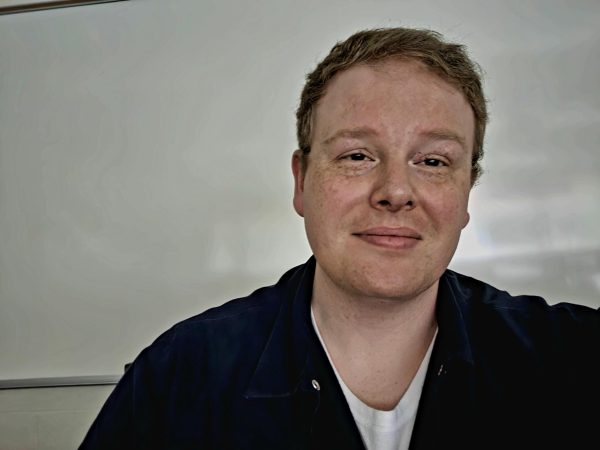Letter to the editor: What’s a university for?
On October 14, Joshua Merchant, Oakland University’s mysterious Chief of Staff, sent an email to the faculty announcing the appointment of Joi Cunningham as the university’s new Vice Provost for Human Resources. The email described the position as involving “leading human capital strategies” and, among other things, “talent acquisition.” The field of “human resources” has always struck me as particularly inhumane, because it sees humans as resources, as if they were “stocks or reserves of money, materials, people, or some other asset, which can be drawn on” (Oxford English Dictionary; OED). The rarer term “human capital,” however, is even more telling. “Capital” is the means by which one pile of money becomes a larger pile of money. The term “human capital” designates a social relation, a social relation in which one group produces a surplus to support their employers. To see workers as resources, or as capital, is by definition, to exploit them. The OED offers this definition (among others) of “exploit”: “to harvest or extract (a natural resource); to extract resources from (a place).”
Merchant’s use of “human capital” to describe faculty is not merely a buzzword. It reveals the degree to which he sees the university as operating under a capitalist model. Under this model, a university’s main function is to deliver workers for the economy. A more generous account might say that the university’s function is to provide students the knowledge and skills necessary to get jobs. In both of these (fundamentally equivalent) models, the university is a factory, a machine that produces certified employees. Its purpose is to graduate students, to provide them with the papers attesting to their suitability to the needs of employers. I use “capitalism” here to denote a social system, not a profit-making business. As a public university, Oakland is not in the business of generating profit for shareholders, but that does not mean it does not operate according to principles that sustain and advance capitalism.
The boosters of capitalism like to say that capitalism is about freedom and individualism. Actually, capitalism relies on hierarchized structures of domination. I’m not even sure there is freedom for the capitalists and executives, constrained as they are by the imperatives to maximize returns for shareholders. Capitalism works by restricting the freedom and individualism of its workers. That subjugation to the demands of capital is obviously felt most powerfully by the factory workers and cashiers who must submit to invasive rules and surveillance technologies, but it has spread through the economy to encompass professionals (doctors, accountants, physical therapists, professors, managers) as well.
It is impossible to disentangle capitalism from hierarchized structures of domination—this was true in late eighteenth-century manufactories and work houses, it was true in the scientific management of Ford factories, and it is true of modern universities operating under the capitalist model. The assertion of dominance explains the Board of Trustees’ hard-line positions in contract negotiations with the faculty. The university continues to claim these positions were driven by financial conditions brought about by the pandemic and a decline in enrollment. Yet recent reports in the Oakland Post reveal that the “university’s “net position increase[d] $76.1 million” in the last fiscal year. Thus, one can only conclude that the Board’s insistence on decreasing support for health care and retirement is first and foremost an attempt to assert its dominance.
Such assertions of managerial dominance stem from a view of or professors as mere deliverers of educational services. They give students the information they need to qualify for their documentation. They are resources, Human Resources perhaps, but resources nonetheless. They are an expense like conveyer belts or tools and dies or oil. As a result, it’s the job of administrators, the growing list of executives swelling the university’s hierarchical leadership chart (and budget), to reduce the expenses associated with that resource.
According to a recent report by the Michigan Association of State Universities, the state legislature in Michigan has reduced funding to public universities by 40% in the last two decades, dropping Michigan from 20th to 44th among states for per capita support for higher education(https://www.masu.org/news/optimizing-education-higher-ed-finance/05-25-2021/peril-state-disinvestment-michigans-public ). While reducing its support for higher education, the state legislature has long tied what remains of its support for state universities to not increasing tuition for students, thus ensuring that most of that burden of budget cuts falls on the backs of faculty and staff. Efforts to reduce the costs spent on labor resources is what happens in a capitalist model of higher education. This is why OU appears determined to cut all costs associated with these resources (salary, benefits, new hires). That, and their belief that the university is and should be a harmonious part of our corporate hierarchized culture that sees all workers as resources.
A favorite virtue of the boosters of capitalism is its relentless pursuit and production of innovation. The success of capitalism can be seen equally in the arrival of iPhone 13 with its “breakthrough camera innovations” (as Apple’s marketing has it) or the “new” Oreos with “unique Pokémon designs” (as their marketing puts it). In this framework, innovation is good in and of itself. On campus, we see this in recent developments like the “Strategic Innovation certification course” launched in partnership with the Institute of Professional Innovators” and in more conventional and respectable practices like the “Teaching Excellence Award,” which rewards teachers for “innovation in teaching,” among other things. There is nothing wrong with innovations in teaching. To imply however, as this award does, that teaching excellence necessarily involves innovation is to imagine students as bored consumers who must be offered new and tantalizing innovations to spark their interests.
The problem with the capitalist model of the university is that it cannot envision an education that does more than provide students with credentials to secure jobs. Unfortunately, university administrators and members of the board are not alone in seeing the university as an engine of capitalism. It is a view shared by many others: legislators, students, parents, and citizens. It can be seen in their (all of their) impatience with courses and curricula that are not directly related to career preparation. What gets left out in this model is the kind of education that prepares students to navigate their lives and the world as thoughtful citizens, to distinguish, for example, reliable information about COVID-19 and its vaccines from quack claims about horse deworming Ivermectin or conspiracy theories about the vaccine including microchips or infecting others. The capitalist model of the university has no place for teaching the fosters the joy of discovering new ideas. It doesn’t prepare students to understand the forces that shape their own experience while linking it to others around the world—like climate change, and immigration. These things may not look like key points for career preparation, but they are a core part of a university’s mission.
I want to be clear. I am not saying that Oakland University doesn’t do these things. Far from it. I am saying that the recent moves by the Board and the administration (increasing the number and compensation of administrators, resisting efforts to offer fair compensation to its employees (staff, full-time faculty, and, especially, “part time” faculty, attempts to diminish the role of the faculty in shaping the direction of the university) demonstrate a commitment to this capitalist model of the university that dehumanizes its employees and undermines the education of the students. What is more, the university is lucky to have a faculty committed to providing students with an educational experience that will equip them to thrive in their world.
I acknowledge that some administrators on campus might object to my account of this capitalist model, or at least claim that it doesn’t apply to them. Any administrator who sees themselves as a “faculty person,” as someone who fights against this corporate model (I know some who are), should produce some tangible evidence to support that belief (I am writing this to propose one means of doing so). It is at best self-deception to think of oneself as on the side of the faculty and students while working for (or not objecting to) a contract that undermines the academic role and the reasonable compensation of the faculty.
This is the view, I argue, of the bankers who run the university. My goal in writing this is to spark a campus-wide discussion. I’d like to hear someone from the Board of Trustees or the administration explain what they see as the role of the university—and how the decisions they make advance that mission. How does treating faculty and other workers at the university as “talent” to be acquired” or “resources” to be managed advance that mission? In my next letter, I’ll sketch my vision of a university.






Ken Mitton • Nov 1, 2021 at 2:02 PM
Things like serious faculty involvement in the creation and planning of programs, and the execution of those programs to educate students, are part of a typical university’s accreditation evaluation with the body that accredits its degree-granting powers. I fear that the pure for-profit corporate template of management pressed on a public university is in danger of running afoul of such accreditation. That kind of situation just placed the University of Florida today under review by its accreditation body for a recent move upon some faculty, common in private business, but also in potential violation of part of its accreditation requirements. Let us not go there.